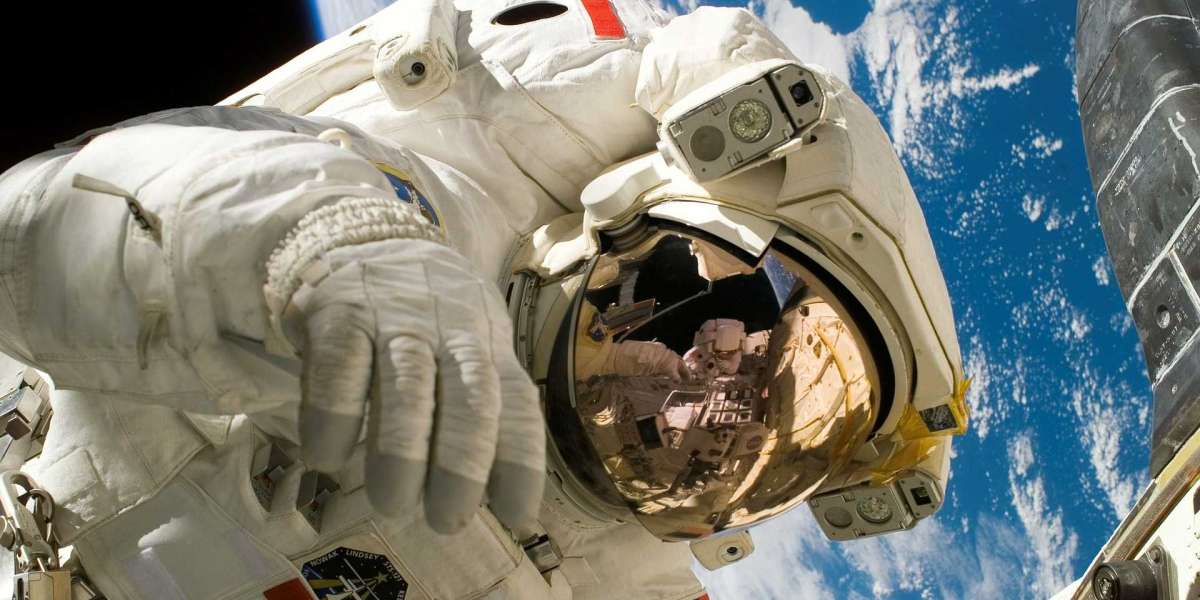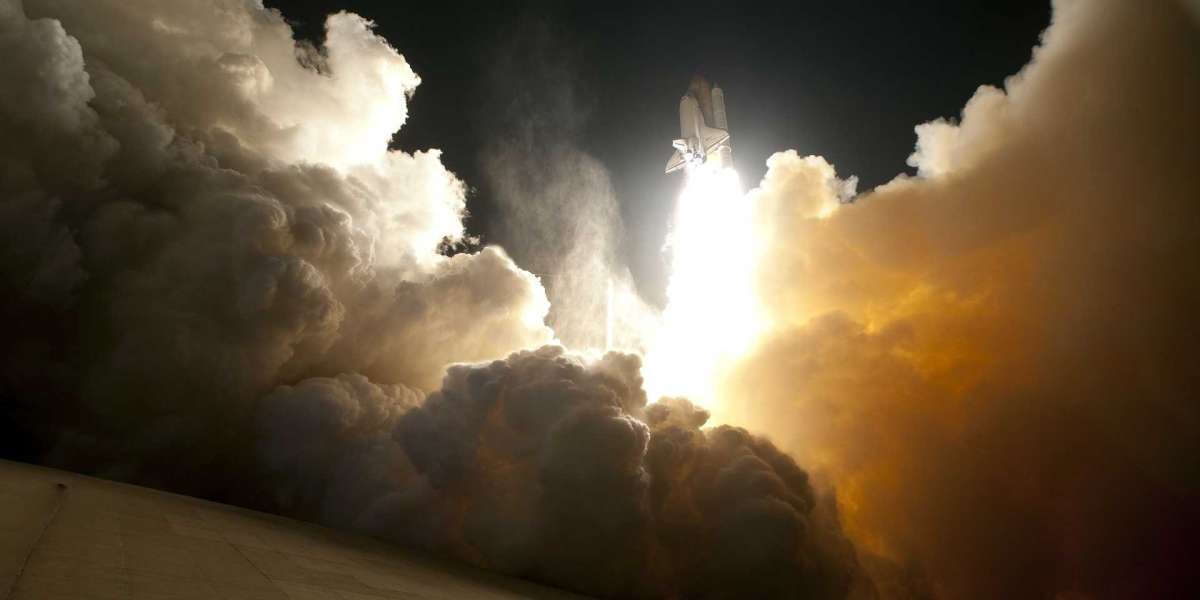At the end of last year, a group of five Canadian academics released a proposal in which they urged the world's top space agencies to embrace a new scientific field. They suggest that the development of this new profession will be critical to the success of planned endeavors to travel deeper into space and maybe establish human communities beyond the planet's atmosphere. In this new field of investigation, researchers have coined the term "space sexology": the scientific study of extraterrestrial closeness and sexuality.
We might be able to travel to space thanks to rocket science. However, as the authors of the idea correctly point out, it is human connections that will determine whether or not we progress as a space civilisation.
It is easy to dismiss this notion as the frivolous thinking of horny academics who overestimate the importance of their specializations in the expectation of creating a playground in which they will be able to pursue their passions without interference. Nevertheless, if you carefully read their content, you will discover that it presents a straightforward but powerful argument.
The underlying cause of the problem
In order to successfully construct extraterrestrial communities, as some people such as Elon Musk hope to do by 2050, we must have well-informed plans for managing relationships and reproduction in those alien outposts. Most people require some level of sexual intimacy for their physical and emotional well-being, therefore astronauts on long-term missions may wish to, or may even be required to, retain some level of sexual closeness while in space. We already know that space conditions can significantly alter a variety of body functions, and that sex and intimacy in space will not function the same way they do on Earth. The fact remains that no concerted, focused effort has ever been directed into unraveling the specifics of how to control these critical parts of human life outside of our planet's natural environment.
Maria Santaguida, a psychologist at Concordia University and one of the proposal's co-authors, points out that she and her colleagues are not the first to emphasize the necessity of researching sex in space, and that they are not the first to make this point. For at least 30 years, a group of researchers from a variety of fields and continents has been working on this issue. Concerns about our collective lack of understanding in this area have begun to percolate to the general public during the last few years, mostly among scientists.
However, prominent space exploration actors have typically dismissed these individual calls to action as extraneous to their activity, frequently forcefully and even mockingly. Proponents of space sex research blame this to the fact that most agencies are preoccupied with other vital challenges, as well as the widespread culture of sexual conservatism, as well as the organizational structure and financing methods that underpin most organizations.
But, as Santaguida points out, change is taking place. Changes such as these could pave the way for a thorough proposal, such as the one put out by her team, to get widespread support and acquire some traction among space agencies, as well as commercial enterprises operating in the market.
Everything we (don't) know about sex in space is contained within this document.
Since the earliest days of human space flight in the mid-20th century, we have understood that low-gravity situations have significant affects on nearly every area of the human body, from the vascular system to muscular and skeletal strength to hormone balance and even the immune system. As well, we have recognized that humans in space, without the protection of the Earth's magnetic field, are exposed to extremely high levels of ambient radiation, which can interfere with our bodies' ability to function and our DNA itself, potentially resulting in a variety of illnesses ranging from radiation sickness to cancer to nerve damage.
In the early days of space biology research, it was understandable that the primary focus was on finding ways to keep astronauts alive in the hazardous environment of space and how to rehabilitate them once they returned to Earth. The early space missions were also so intense, short, and confined, with only a few people in a little metal container rushing into a cruel and unknown vacuum, that there was no need to think about sex under those conditions. In fact, there was no reason to think about sex under such conditions.
After the Soviet Union launched the Mir space station in 1981, a revolutionary space station that allowed astronauts to spend months in space at a time, space scientists, including some from the United States National Research Council, began to express concerns about the effects of long journeys into space on sexual and reproductive health, particularly in the 1980s. The results of the time reports demonstrate how little we knew about the impacts of the space environment on fertility and sexual functioning. When the former Soviet Union began performing cooperative missions with the United States in the 1980s, public commentators began to speculate in the press about the prospects for sex in space - whether it would occur, how it would take place, and whether it would be safe in any way.
An increase in public interest in alien sex has occurred over the last decade, as the increasingly feasible prospect of space tourism and colony attempts has fueled a fresh spike in popular interest in extraterrestrial sexuality. Journalists are increasingly writing about the slightest details of how to do it in space, and conferences and even television specials are devoted to it. Each thrust or push can cause two people to fly apart from each other in low gravity conditions, and they go into great depth about how they do it. Also, how the effects of low gravity on hormone levels and blood flow could affect people's sex drive and physical arousal, as well as how fluids shrink as a result of the lack of gravity, which can result in huge balls of sweat and sperm floating around in microgravity space, are being investigated.
Concerns regarding the influence of space travel on sexual health were apparently disregarded by NASA in the 1980s as a "professional prank" by biologists or as "making a big deal out of absolutely nothing."
The National Aeronautics and Space Administration (NASA) has evolved its working methods over time. In an interview with Mic, a NASA spokesperson stated that their partners also investigated the fundamental science of reproductive physiology in a variety of species, including fruit flies, worms, snails, jellyfish, fish, frogs, chicken (bird) eggs, rodents, and other insects. Other research investigations with bulls and human sperm have also been done in the past. There have been several additional space agencies and external research groups that have undertaken their own studies on the impacts of space on sexual and reproductive health, and academics are only now beginning to collect complete assessments of the findings from these studies to date.
However, according to a review published by scientists Alex Layendecker and Shawna Pandy in 2018, the data obtained through these experiments is sparse, inconsistent, and does not provide enough information to say definitively whether reproductive physiological processes can be carried out safely and successfully in space.
For example, data collected on animal models may not be applicable to humans; data collected during short experiments in a specific space environment may not tell us anything about the effects of long-term missions in an environment with a unique gravity and radiation profile; and data collected during one phase of reproduction may not tell us anything about the effects of space on another phase of reproduction; At best, we can entertain sporadic hypotheses regarding the impacts of any space environment on human reproductive organs, on the process of conception and pregnancy, and on the development of the newborn baby.
Adding to this is Simon Dubé, a psychologist at Concordia University and co-author of the Space Sexology concept, who points out that all previous study has focused on a single, limiting aspect of human sexual experience: reproduction. Researchers have found that research on human connection and sexuality in space – including their sociocultural and psychological components – is virtually nonexistent, according to Potal Mitz.
According to Dubé, no research has been conducted on intimate relationships, nor on the human experience of sexual functions and well-being in space or space-like environments, nor on how any of these factors can affect crew performance in space or space-like environments.
What is it about space agencies that makes them uncomfortable talking about sex?
When journalists or researchers press space agencies to discuss not only reproductive health, but also sex itself, and even less about intimate relationships, these interlocutors almost always abruptly stop talking altogether.
Some critics believe that space agencies are solely concerned with reproductive health issues because they are not interested in interplanetary tourism or resorts, but rather in rudimentary space research in general.
Of course, they have grandiose research initiatives in the works, such as NASA's Artemis project, which will include a prolonged stay on the moon and eventually a potential human mission to Mars. Small teams of astronauts could be stationed in space for years on end as a result of these missions. However, according to reports, NASA and other major space organizations have long believed that romantic relationships could threaten crew stability rather than add to the emotional and physical well-being of astronauts on the space station. As a result, they have generally called for abstinence in missionary endeavors.
At NASA, everyone is a professional with suppressed hormones and desires.
Most of our attention is focused on protecting the health and safety of crew members who will be in space for a lengthy period of time. As a NASA representative explained to Mic, the agency's human research program is focused on mitigating the five risks of human spaceflight and investigating strategies to assist crews in working together and remaining emotionally prepared during their journey.
If it is determined that there is a future need for a more in-depth research of reproductive health in space, NASA will take the necessary steps. According to NASA, the agency is not actively soliciting applications or selecting a specific locale or project office for the subject.
There have been rumors of astronauts who have broken the unwritten norms of sex on occasion. Most notably, in 1992, two NASA astronauts secretly fell in love and married while in training, only to reveal their relationship to their superiors when it was too late to change their mission. The two then ascended into space together, sparking an unprecedented avalanche of tabloid speculation.
It's worth noting that astronauts typically respond to these claims either with outright denial or with contempt at the concept of even thinking about sex while in space and so potentially ruining their missions. When asked if there was any "hot action" during a two-week journey to the International Space Station, NASA's Alan Poindexter told reporters back in 2010 that the team was "a group of experts" (ISS). We treat one another with courtesy and enjoy a positive working environment together. Personal relationships are not a concern, he stated at the time of the interview.
Russian space adventures compel us to take action.
The Russian cosmonaut Valery Polyakov, who spent 437 days in space during the 1990s, kept a journal in which he wrote that state doctors advised him to bring a sexually explicit doll with him to deal with any impulses he might have, and that Mir had a modest collection of obscene films. However, he rejected this advise, claiming that his horror only subsided when he did not follow it.
In the opinion of several doctors, expecting abstinence during long-term space missions is nave and unreliable. However, critics of space agencies frequently assert that this is not a case of sheer naivete on their part. After all, in a group of serious scientists, intentional sexual ignorance is hardly something that is inherent.
Instead, these opponents and skeptics believe that the agency's deafening silence on sex is due to the fact that they all rely on government financing for the majority of their operations. NASA is alleged to have censored images of human nudity on several space probes that were sent into orbit to show all aliens who might encounter them what humans look like, out of concern for how the public and Congress would react to sending pornography into space. The probes were intended to show all aliens who might encounter them what humans look like.
All that is required is for one member of Congress to express concern about the possibility of future funding being jeopardized. According to Jon Lomberg, a space artist who worked on those probes, NASA would be foolish to take such a risk.
The private sector is not interested in this, but is the space tourism industry interested in private sector participation?
However they justify it, if huge space agencies are not going to examine sex in space, others believe that private space companies, such as Elon Musk's SpaceX or Jeff Bezos' Blue Origin, may be able to take on the responsibility. Indeed, individuals have the freedom to pursue their own interests while simultaneously being a key influence in the development of space tourist ventures and colonies outside of the planet.
Those private groups, on the other hand, were eerily silent on the subject of sex and intimacy in space. In his recent interview with the New York Times, Musk brushed aside concerns about the impact of space travel on any part of human biology, claiming that his mission is just to design hardware that will allow humans to travel to Mars inexpensively, rapidly, and dependably. However, neither Blue Origin nor SpaceX, nor any other commercial space business, has made any statements on the matter.
In a recent proposal, the team behind it adds that while they wish to attach this subject to a major space agency, they also believe it is necessary to establish relationships with institutions, private organizations, and anybody else who may have relevant resources.
The proposal's co-author, Judith Lapierre, is a health expert at Laval University who believes that bringing everyone together at the table is essential for addressing the transdisciplinary difficulties of human sensuality in space and promoting well-being as we travel to and beyond the ultimate frontier.
The future of sexology in outer space
One of the co-authors of the proposal, Dave Anctil, a Collège Jean De Brébeuf expert in scientific ethics who is also one of the proposal's co-authors, explains that it all comes down to calendars. He contends that the closer space agencies and private enterprises get to starting their large-scale initiatives, the more difficult it will be for them to disregard all of the human dimensions of these endeavors that they have hitherto overlooked. Despite the fact that they are reluctant to accept sex and intimacy, it is slowly creeping up on them.
According to Santaguida, an increasing number of experts and others working in the space sector throughout the world are realizing that satisfying human personal and sexual needs in space is one of the keys to unlocking our long-term development into space.
The media, the general public, and certain persons working in the space industry have all expressed strong interest in our plan, which has generated a lot of positive feedback. We want to take advantage of this interest in the near future to accomplish creative collaborations and scientific breakthroughs, says Dubé.
Of course, even if the Canadian team's proposal to establish a new field is approved and the team receives the support they desire, the changeover will be a lengthy and complicated undertaking. To put it another way, researchers and their partners will have to figure out how to design rigorous tests and conduct them in an ethical manner while in space or space environs.
However, Dubé is certain that they will be able to come up with anything as long as they can secure enough devoted funding to further space sexology research and development.



